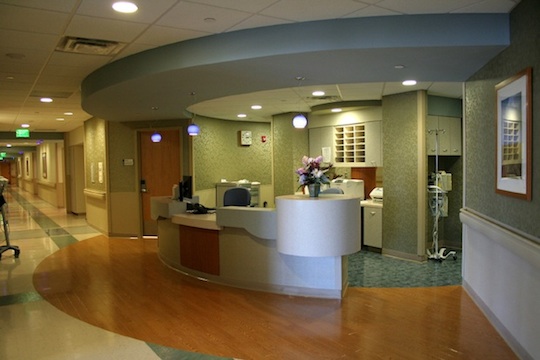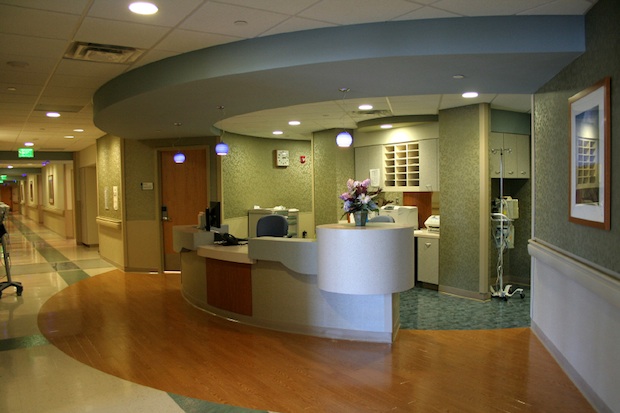
The job-creating machine of health care has hummed along even during the recent economic slump. The sector added 239,000 positions nationally during the 12 months ending in October, with hospitals and their umbrella health systems generating thousands of new positions.
But the hospital employment engine seems to have stalled a bit in Georgia. Hospitals across the state have recently reviewed their reimbursement arithmetic and started reining in costs. That, in some cases, has meant layoffs.
Piedmont Hospital in Atlanta last week became the latest major player to shed jobs. The Buckhead facility’s reductions included 24 occupied positions, including some middle managers. The hospital also eliminated 36 vacant jobs.
That action followed a larger reduction at Gwinnett Medical Center, and a recent news report of an impending cut in jobs at St. Joseph’s/Candler Health System in Savannah.
The Georgia Hospital Association says hospitals had a wave of job cuts two years ago when the economy hit the skids. “Just in the past month or so, it seems to be picking up again,’’ says Kevin Bloye, a GHA vice president. “It seems we’re heading for another wave.’’
It’s not just Georgia hospitals experiencing a budget crunch. Nationally, ‘’hospitals are under severe financial pressure,’’ says Irwin Hurn, a San Diego-based partner with Tatum Healthcare. One-third are losing money, and another third are breaking even, Hurn says.
In Georgia, the percentage of hospital work forces affected by job cuts is small. Still, the hospitals involved cite the economy, along with other factors, as fueling the drive to cut costs.
Rising number of uninsured
With unemployment remaining stubbornly high, the percentage of uninsured Georgians has climbed to 20 percent. More patients are entering hospitals without coverage, hospitals say. Other patients have high deductibles and must pay out of pocket for medical services. As a result, many people cannot pay the resulting hospital bills for services. In addition, many patients have postponed elective procedures due to financial difficulties.
Hospitals also have blamed funding gaps in Medicare. In addition, some cite a new hospital tax passed by the Georgia General Assembly to shore up the state’s Medicaid program. (Piedmont says its tax is $10 million.) And the hospital industry as a whole fears looming reimbursement cuts in Medicaid.
“While Piedmont Hospital is fortunate to start from a position of financial health, we must take decisive action to address the challenges at hand, and those yet to come, to ensure a solid, sustainable organization,’’ the hospital said in a statement.
Hurn notes that medical services have also undergone a transformation. Many procedures are now done in outpatient ambulatory surgery centers. The average length of a hospital stay has dropped from 7.2 days in 1980 to 5.5 days now, he says.
With labor representing 50 percent of costs, many hospitals must consider cutting jobs, Hurn says. “A lot of hospitals have held off making staff cuts. Now there’s not much choice.’’
Weathering the downturn
Gwinnett Medical Center this month identified more than $22 million that needed to be cut for fiscal 2011. As part of a larger plan, the medical center said it would eliminate 93 jobs and not fill another 67 vacant positions.
“Gwinnett Medical Center is among the most well-positioned systems to weather this downturn, but there are steps we must take to maintain that position and ensure continued stability,’’ said CEO Phil Wolfe in a memo to employees.
Meanwhile, St. Joseph’s/Candler, seeking $11 million in budget cuts, plans to reduce its work force by 3 percent. That will mean some layoffs, though the hospital said it hopes to eliminate many jobs through attrition.
And last month, Hamilton Health Care System, based in Dalton, had a ‘’management restructuring’’ that eliminated nine administrative positions.
Meanwhile, many rural hospitals have already cut costs to the bone, including reducing staff, says Jimmy Lewis, CEO of HomeTown Health, an association of 55 rural facilities in the state. The larger hospitals in the state, Lewis says, “are starting to feel it now.’’
Hurn, of Tatum Healthcare, warns that the nationwide financial squeeze on hospitals won’t end soon. “Hospitals that think they’re doing well need to wake up and look around,’’ he says. “They may be in for some hard times.’’

